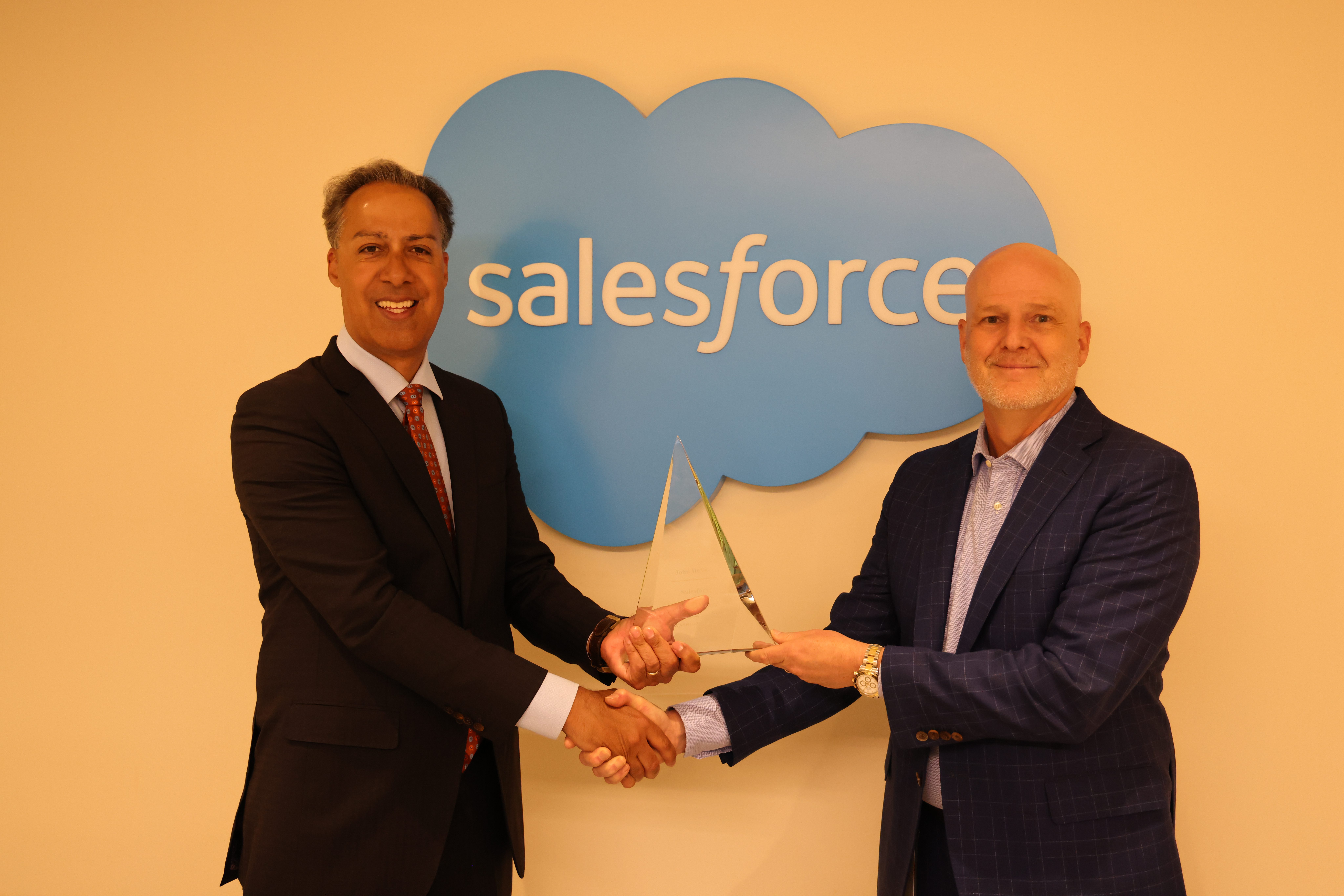
WashingtonExec has awarded Salesforce’s Vice President of Aerospace and Defense John DeVoe with the Longevity Award, which recognizes executives who made outstanding contributions to their companies throughout the years.
DeVoe has been with Salesforce for 16 years. When he first joined, Salesforce had around 1,800 employees and just over $500 million in annual revenue. Since then, Salesforce has grown to over 70,000 employees globally and $31.4 billion (FY23) in annual revenue.
Below, DeVoe shares how he got started with the company, the impact he has made, mentorship moments and more.
Why did you join in the first place?
Prior to joining Salesforce, I had the privilege of working for the federal government for 8 years, followed by a productive time at a different software company. While I’m thankful for those experiences, I wanted something more. I was intrigued with Salesforce’s business model and its role as a disruptor in the software industry. When the opportunity came up to join a few colleagues here I jumped at the chance for exciting and rewarding challenges.
What made you stay?
The people. Always the people. My colleagues are fantastic and dedicated to our customers’ successes, and they make things really enjoyable. Additionally, the products are really incredible. We’ve grown from just Sales Cloud for primarily sales-related solutions to become the leader in AI+Data+CRM.
What’s the best part about staying with a company for as long as you have?
Working at Salesforce has proven incredibly rewarding in a number of ways. I’ve had the opportunity to learn, grow and build in ways I wouldn’t be able to do elsewhere. I’m quite thankful for what Salesforce offers, so I don’t consider it “staying” per se. It’s more about just continuing to build and grow and surrounding oneself with good people, and then sharing experiences and learnings with newer employees. This can be general or as the role of coach or mentor.
What are some myths you’ve come across relating to long tenures in organizations?
Perhaps this is on me, but I’m not really familiar with that line of thinking. If you find the right employer, have the opportunity to work with great people, and continue to contribute and grow, it makes the “decision” quite easy.
How have you changed as a professional from your first years to today?
I’ve learned and adapted my leadership style considerably since I joined the company. In retrospect, when I first started managing a team I simply wasn’t the manager that I hoped to be. I’ve had the benefit of learning from others, learning about myself and I continue to put in the hard work.
What’s the most significant impact you’ve had on your company?
I love opportunities to start new teams or help teams that may be a bit stuck. Those situations are incredibly rewarding. It requires curiosity, humility and a deep understanding of knowing where you’re going and why. From there it’s about prioritization and execution.
What do you wish you could tell your younger self in that first year?
Listen more, talk less. Lead with empathy. Learn from as many people and difficult situations as best you can. Be aggressive, sure, but also be patient, flexible and open to change. If you can learn to embrace change and learn to thrive in those conditions you can do just about anything.
How do you share your institutional knowledge?
I try to keep a rotating group of 3-4 people at any given time to either coach or mentor, and I will always take a 1:1 meeting to listen and/or provide perspective. The rest of it comes down to planning, executing and time in the field with my colleagues
What has been your most significant mentorship moment?
It’s absolutely when a mentee is able to make a mental and emotional shift to see a given situation differently. Many times it involves being able to focus on the specific situation and not on the other person per se. They can then take that experience and continue to apply it to all kinds of professional and personal situations.

